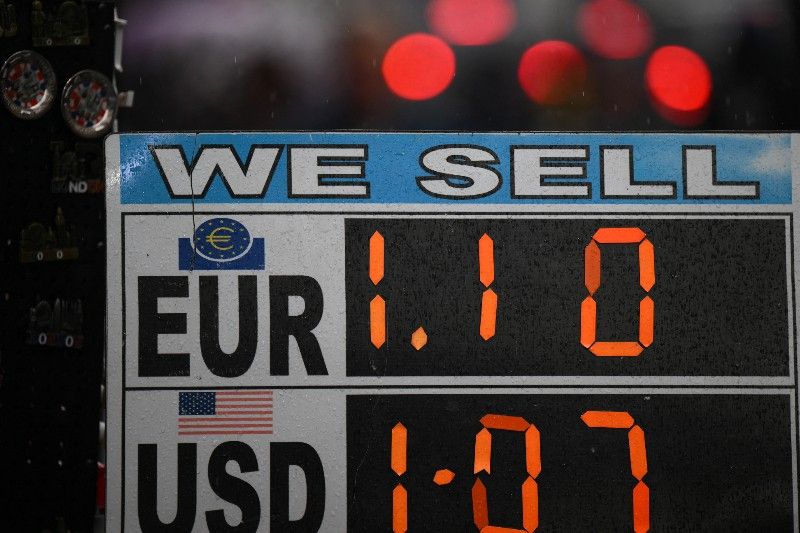Hey big spender: tax breaks, huge outlays — the UK's unusual mix

PARIS, France — The United Kingdom's new budget is part tax breaks inspired by "trickle-down economics", part massive borrowing to fund a costly freeze on energy bills following Russia's invasion of Ukraine.
Here is what you need to know about this unlikely blend of measures:
Wealth 'trickling down'
The tax cuts announced by the UK government echo those in the United States under Republican presidents Donald Trump in 2017 and Ronald Reagan in the 1980s.
Inspired by "trickle-down economics", the theory holds that lower taxes on the rich give them more cash to spend, creating growth and jobs for the benefit of all.
The theory is hotly contested.
A study published in 2020 by the London School of Economics found "economic performance, as measured by real GDP per capita and the unemployment rate, is not significantly affected by major tax cuts for the rich".
Researchers drew their conclusions after looking at data from 18 countries from the Organisation for Economic Co-operation and Development (OECD), including the United Kingdom and the United States, over five decades.
Critics charge the new measures will benefit the rich far more than the poorest, as millions of Britons suffer from a cost-of-living crisis.
But Prime Minister Liz Truss has dismissed accusations the tax breaks for the wealthy were unfair as "people on higher incomes generally pay more tax".
Massive public spending
In the 1980s, then Conservative prime minister Margaret Thatcher also introduced tax cuts -- but she simultaneously cut public spending.
But the new government has done the opposite.
"Usually, when tax cuts are announced, governments also announce a reduction in spending or other tax increases to show they are serious," said Belgium-based economist Gregory Claeys.
But in the United Kingdom today "it's being combined with extra expenses, an enormous package" of spending, he said.
With UK public debt already at around 100 percent of GDP, economists estimate that the whole economic package will cost £100 billion to £200 billion -- on top of financial aid already earmarked to deal with the energy crisis.
Credit ratings agency Moody's has warned about the debt impact of the new tax-slashing budget.
"The Treasury estimates that a two-year cap on energy bills for households and businesses will cost £60 billion (2.4 percent of GDP) over the next six months and will be funded largely by new borrowing," it said.
The ratings agency has called Britain's new fiscal policy regime "credit negative", adding that a sustained confidence shock could "permanently" weaken its debt affordability.
Unconvincing package
Finance Minister Kwasi Kwarteng's big tax cuts and energy price freeze, aimed at boosting the recession-threatened economy, appears to have had the opposite effect.
The British pound sunk to a record low against the dollar on Monday on concerns the tax-cut plan could derail public finances, though it then rebounded the next day.
The measures also come as the Bank of England is hiking interest rates in a bid to cool decades-high inflation.
In a highly unusual intervention, the International Monetary Fund said it was "closely monitoring" developments and urged the government in London to change tack.
"We understand that the sizable fiscal package announced aims at helping families and businesses," it said.
"However, given elevated inflation pressures in many countries... we do not recommend large and untargeted fiscal packages at this juncture."
French economist Olivier Blanchard has called the plan "a textbook example of how not to design and not to sell a fiscal expansion", or an increase in spending.
"We are lucky that the UK is not in the euro," he wrote on Twitter last week.
"Otherwise, we would be facing another euro crisis."
- Latest
- Trending

























